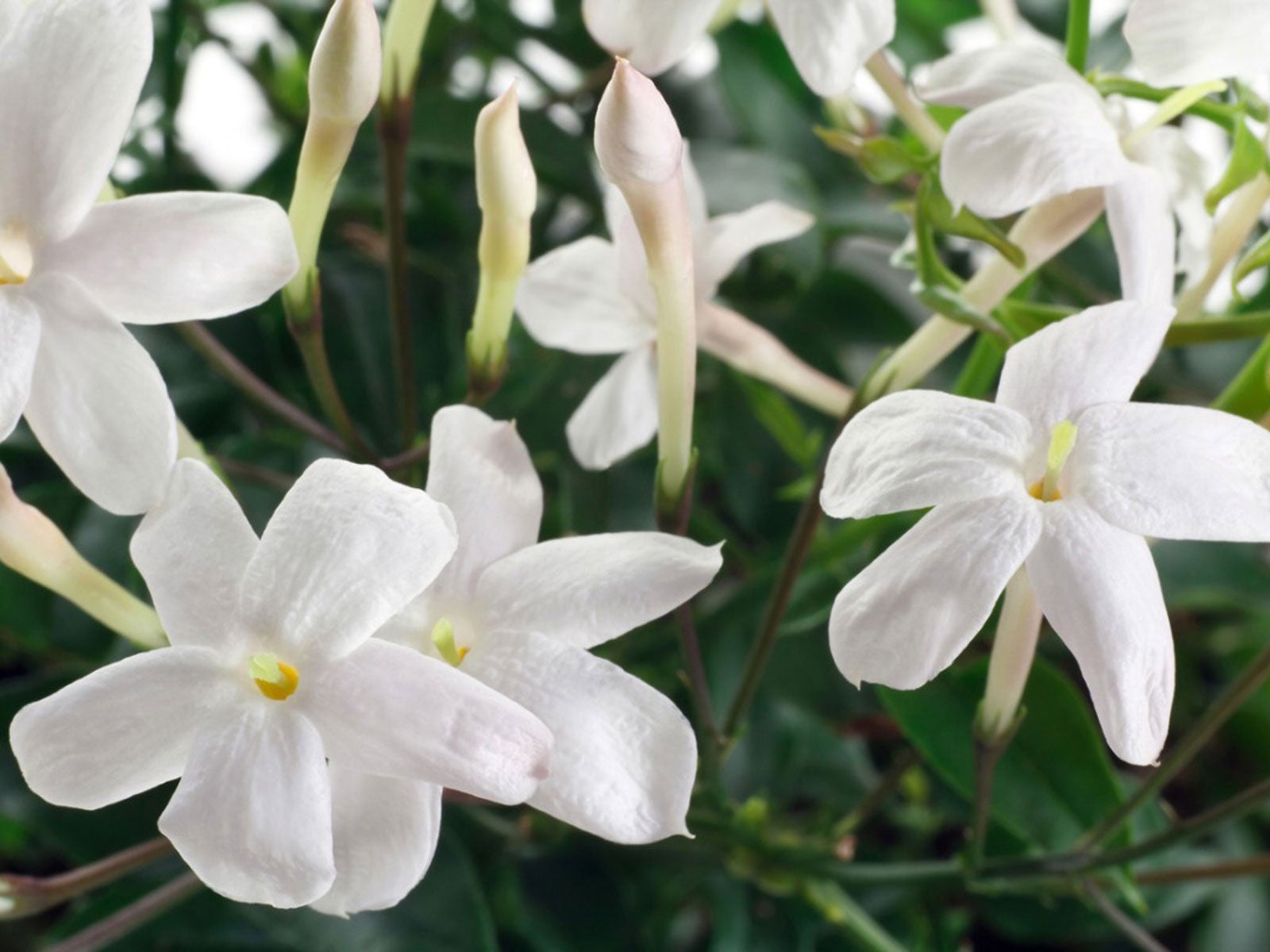Jasmine Plant Fertilizer: When And How To Fertilize Jasmine


Sign up for the Gardening Know How newsletter today and receive a free copy of our e-book "How to Grow Delicious Tomatoes".
You are now subscribed
Your newsletter sign-up was successful
Consistent blooms, divine fragrance, and appealing glossy green leaves characterize one of the best known scented flowering plants around. Jasmine plants speak to the exotic and call to mind sunny days and warm sultry nights. The best blooms occur on plants that have been well cared for and fed routinely. What to feed jasmine though? Learn the secrets to thriving floral plants and how to fertilize jasmine properly here.
Fertilizing Jasmines
Jasmine fertilizing time is spring or late winter if you live in a mild climate. The goal is to give the plant the nutrients needed for foliar formation, healthy roots, and pest/disease resistance, and, of course, flowering.
Phosphorus is the macro-nutrient responsible for fruiting and flowering production in plants. True jasmine, or Jasminum officinale, should not be confused with star jasmine. The true jasmines are the plants with the heavenly scent. Proper feeding will enhance the heady scent and help the plant produce a profusion of the aromatic blooms.
How to Fertilize Jasmine
There are a couple of methods for fertilizing jasmines. Plants in a rich organic growing medium rarely need extra nutrients added to the soil, and adding compost to the top of a container once or twice a year will help keep a healthy and nutritious amount of organic material in the container.
If you choose to use chemical fertilizers on your container grown jasmine, it is true with plants that there can be too much of a good thing. It is important to make a note on chemical fertilizer salts and their build up. Excess fertilizer deposits salts in soil, which can burn roots and actually cause harm to the plant.
Plants in ground may also benefit from additional food added at the right time if they are in poor soil. In spring, when it is jasmine fertilizing time, either amend the soil with mulch or organic mixtures or use a slow release granular or liquid dilution of jasmine plant fertilizer. Assess your soil, the plant's condition, and location before choosing a method.
What to Feed Jasmine
Plants with yellow leaves may be indicating it is time to feed your jasmine. Jasmine plants in the garden usually don't need supplemental fertilizer unless they are in nutrient poor soil.
Sign up for the Gardening Know How newsletter today and receive a free copy of our e-book "How to Grow Delicious Tomatoes".
As a rule, thick organic mulch applied around the root zone of the plant will leach and compost into the soil slowly and feed the roots. If your plant doesn't produce many blooms but has thick lush, leafy growth, it probably gets plenty of nitrogen but is growing in soil low in phosphorus.
Use a jasmine plant fertilizer with a higher middle number, which represents the ratio of phosphorus in the formula. Potted plants are trapped and cannot access any more nutrients than those already in the soil. You need to add a good plant food in the form of a half dilution every two weeks during spring and summer. Do not fertilize in fall and winter.
Granular slow release foods are good for the sometime lazy gardener who forgets to feed on a regular schedule. Scratch the grains into the top 2 inches (5 cm.) of soil around the edges of the root zone and water in.
Over time, the granules melt into the soil and slowly released needed food to the plant. Read the directions carefully for the exact amount for your size plant to prevent over feeding and health problems.
Note: Any recommendations pertaining to the use of chemicals are for informational purposes only. Chemical control should only be used as a last resort, as organic approaches are safer and more environmentally friendly.

Bonnie Grant is a professional landscaper with a Certification in Urban Gardening. She has been gardening and writing for 15 years. A former professional chef, she has a passion for edible landscaping.